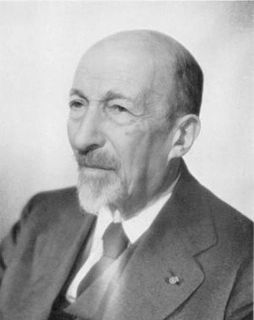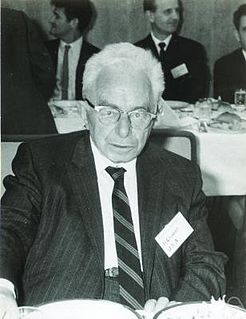A Quote by Henri Bergson
An absolute can only be given in an intuition, while all the rest has to do with analysis. We call intuition here the sympathy by which one is transported into the interior of an object in order to coincide with what there is unique andconsequently inexpressible in it. Analysis, on the contrary, is the operation which reduces the object to elements already known.
Related Quotes
The effects of heat are subject to constant laws which cannot be discovered without the aid of mathematical analysis. The object of the theory is to demonstrate these laws; it reduces all physical researches on the propagation of heat, to problems of the integral calculus, whose elements are given by experiment. No subject has more extensive relations with the progress of industry and the natural sciences; for the action of heat is always present, it influences the processes of the arts, and occurs in all the phenomena of the universe.
Intuition is the innate ability in everyone to perceive truth directly - not by reason, logic, or analysis, but by a simple knowing from within. That is the very meaning of the word "intuition": to know, or understand from within - from one's own self, and from the heart of whatever one is trying to understand. Intuition is the inner ability to see behind the outer forms of things to their inner essence.
Mathematical reasoning may be regarded rather schematically as the exercise of a combination of two facilities, which we may call intuition and ingenuity. The activity of the intuition consists in making spontaneous judgements which are not the result of conscious trains of reasoning. The exercise of ingenuity in mathematics consists in aiding the intuition through suitable arrangements of propositions, and perhaps geometrical figures or drawings.
Truths are known to us in two ways: some are known directly, and of themselves; some through the medium of other truths. The former are the subject of Intuition, or Consciousness; the latter, of Inference; the latter of Inference. The truths known by Intuition are the original premisses, from which all others are inferred.






































